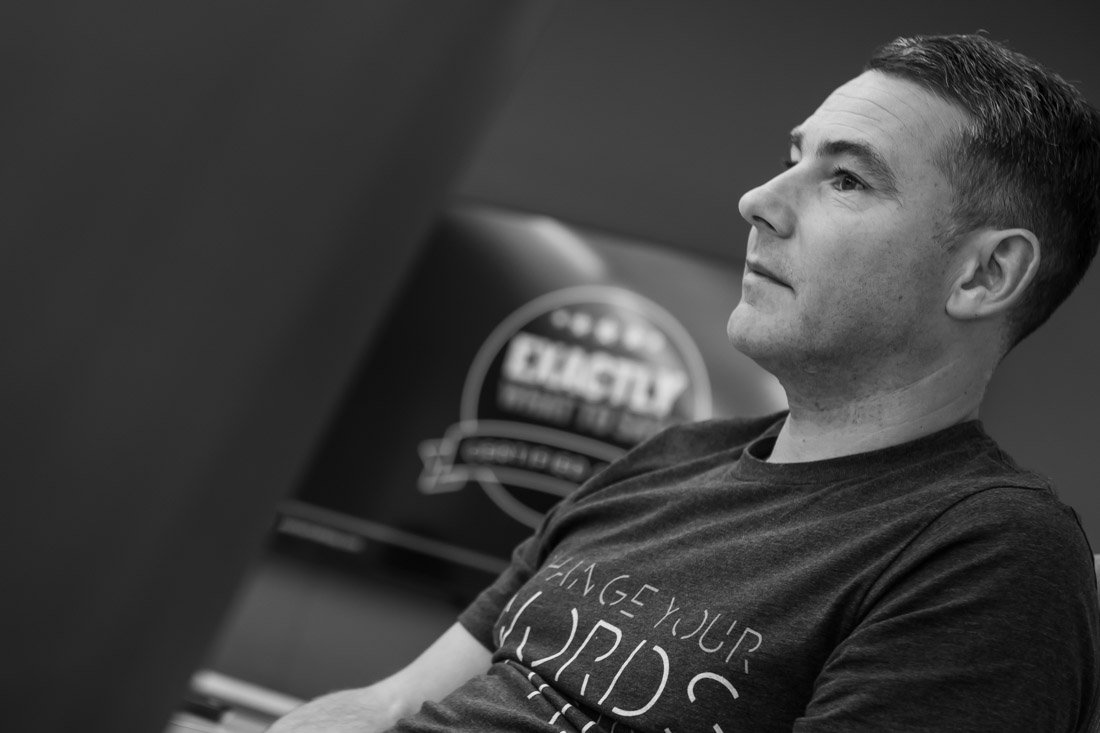Wellness is defined as practising healthy habits daily to attain better physical and mental health outcomes.
Practising healthy habits means that instead of merely surviving, you are able to thrive.
At first glance, you might think that someone is thriving, but appearances can often be quite deceiving. Some people, despite their professional success, can be experiencing genuine suffering. It could be relationships, parenting or even physical health.
Just because a bank account is healthy doesn’t mean that everything else is perfect.
Achieving Balance
EWTS Certified Guide, Jessica Woodbeck, understands the importance of wellness in the world of business and brings holistic programs to her company and beyond. She has experienced first-hand how the devastating effects of overlooking one’s wellness can be.
On the surface, everything in her family appeared wonderful. Her father was a phenomenal consultant, and professionally, all was going well. But the stress of not cherishing what he had, like taking care of his marriage, his health, and his parenthood, resulted in hard repercussions for her family. Her father went from being an exceptional consultant to being unable to hold a job down. He almost lost his marriage and was convinced he had disappointed his children.
Unfortunately, they went bankrupt and lost everything in 2001. They were under a lot of pressure to keep things going, but sometimes, it’s simply not possible.
There comes a point when enough is enough.
Learning from this experience, her motto became centred around controlling the controllables.
Some things you will never be able to control, and trying to do this will result in never finding the right balance. However, if you focus on the controllable, that balance will be easier to find.
Your wellness is one of these controllables.
Wellness 3 Key Factors
Wellness is a complete state of well-being that covers all aspects of life, not just the absence of illness.
Unfortunately, most of us wait to react to our health and wellness rather than being proactive about it.
However, this is where you can operate with one of the key methodological techniques of Exactly What to Say, doing the work before the work.
To do the right prep, you should understand the three key factors of wellness: physical, emotional, and spiritual. Providing each with the attention it deserves will help you with your overall wellness and well-being.
1
Physical
Wellness is often believed to be the most important factor in wellness, and most people focus on maintaining a healthy body. This is achieved through activities like regular exercise, proper nutrition, sufficient sleep, and avoiding harmful habits like smoking or excessive alcohol consumption.
Physical wellness involves taking care of yourself and your physical health to prevent illness and promote longevity.
2
Emotional
You can define emotional wellness as understanding, expressing, and healthily managing your emotions.
Emotional wellness involves developing self-awareness, coping with stress, building resilience, and fostering positive relationships.
3
Spiritual
Spiritual wellness is a person’s need for purpose, meaning, and connection to something greater than themselves. It usually focuses on finding your purpose and meaning in life.
How would you score yourself from 1-10 in these areas? Are there any gaps that you can see in your scores?
Most people have these gaps, and once they are identified, you can see what areas need the most nurturing. Your most significant gap should become your priority, with the end goal being to close the gap so that how you behave is in alignment with your beliefs,
The gaps are where imposter syndromes are created, as well as friction, stress, and anxiety, therefore eliminating the gap will enhance your wellbeing.
Four-Point System For Each
Jessica uses a four-point system to take care of each factor. These four points are:
- Believe & Behavior
- Accountability
- Boundaries
- Waterproofing
Beliefs & Behavior
Your true character is revealed in the alignment between your beliefs and behaviour. Achieving a balance between these two elements is important. Once they are aligned, you will feel your well-being soar.
Accountability
What kind of accountability can you put around your physical wellness?
For example, if you know that food, and your relationship with food, is not a 10 out of 10, then could it be possible that working with a nutritionist could help? Positive accountability could come from education, training with a private coach, and understanding what your triggers could be. Accountability allows you to be proactive in avoiding these scenarios.
Boundaries
What could your boundaries be? These boundaries need to stabilize your emotional wellness. This could be your choice of management around people, places, and things that would enhance your emotional wellness.
Waterproofing
Waterproofing is your safety blanket and could be as simple as giving a five-minute time limit to the people who drain your energy.
You might be juggling your professional life with your family, children, and spouse. These things seem to take precedence over your physical wellness almost daily.
What are ways in which you can waterproof your opportunity to serve your emotional wellness?
Your wellness is important and paying attention to these four key areas is really critical.
By practicing healthier habits you can achieve a better balance but you will need to put in the work before the work. Analyse your current well-being and identify the areas that need some attention.
What are the areas that you need to give some attention to, physical, emotional or spiritual?










